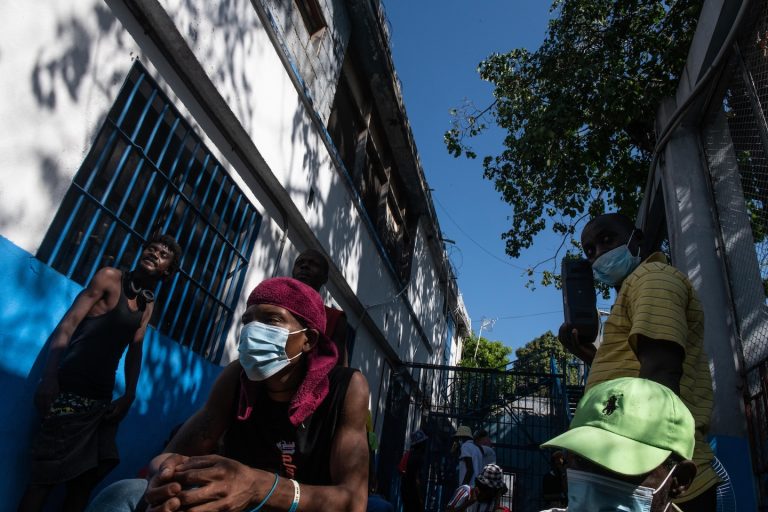In a statement, Boiver accused Haitian gangs of committing numerous violent criminal acts, including kidnapping, assassinations, and violence against women and children, as well as attacks on prisons.
“The police were ordered to use all legal means at their disposal to enforce the curfew and arrest all violators,” Boever said. He wrote that the curfew will start from eight in the evening until five in the morning
The dramatic escalation in violence comes after Jimmy Chérizier – a former police officer turned gang leader known by the nickname “Barbec” – called on Haiti's warring criminal factions to unite to oust the country's acting Prime Minister Ariel Henry.
Gangs, such as Schrezier's G9 family and allies alliance, are now estimated to control up to 80 percent of the Haitian capital Port-au-Prince amid a surge in violence that killed 4,789 people last year, according to the United Nations.
The death toll from the weekend's violence was not immediately clear, although a journalist for Spanish news agency EFE recounted seeing at least 10 bodies in the national prison.
Henry, a neurosurgeon who has served as Haiti's top official since the 2021 assassination of President Jovenel Moise, left the country last week to try to rally support for an international security force. In Nairobi, he attended a signing ceremony for reciprocal agreements that could help send 1,000 Kenyan police officers to Haiti to lead an international police force backed by the United Nations.
Henry's trip to Kenya came after the African country's high court ruled that a 2023 agreement to send police officers to Haiti would be unconstitutional because Kenya's national police force could not be deployed outside the country and the two countries did not have reciprocal agreements.
In a lecture he delivered at the American International University in Kenya on Friday, Henry said elections were necessary to stabilize the country. “We need democratic governance so that people will come and invest in Haiti,” he said.
Haiti has no elected officials in power and has not held elections in nearly a decade. Caribbean leaders said late Wednesday that Henry had agreed to hold a general election by mid-2025, although security concerns clouded any such pledges.
The Biden administration refused to send troops to an international force in Haiti, and instead focused on providing other types of aid. In a security alert issued on Sunday, the US Embassy in Port-au-Prince said US citizens should “leave Haiti as soon as possible” and said its operations could be affected by “gang-related violence and its impacts on transportation and infrastructure.”
State Department spokesman Matthew Miller told reporters Monday that the United States was monitoring the situation, and condemned efforts by the gangs to “further destabilize and control Haiti.”
“We understand that the prime minister will return to the country,” Miller said. “We think it's important that he does that, and that he's allowed to do that.”
Internet service in the country was cut for some users on Sunday, with Caribbean company Digicel later reporting that connectivity had been cut as a result of violent clashes in the Kazoo area of Port-au-Prince. The company has managed to fix the connection, Digicel chief Martin Bott wrote on X.
“A very special thank you to our brave technicians who worked tirelessly, in extremely risky conditions to make this possible,” Bott wrote.
Taylor reported from Washington.

